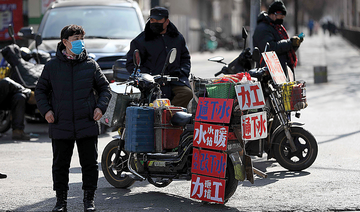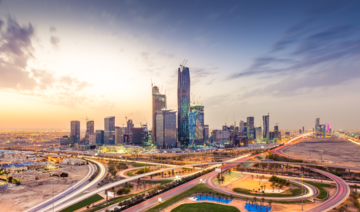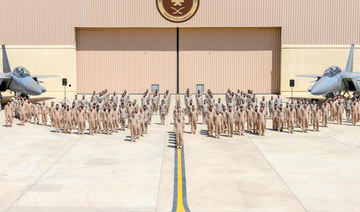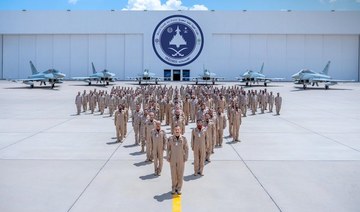NEW YORK: Abdallah Al-Mouallimi, the permanent Saudi representative to the UN, on Thursday reaffirmed the Kingdom’s commitment to multilateralism.
Through its presidency of the G20 last year, he said, Saudi Arabia had worked to emphasize the importance of multilateralism and enhance global cooperation to better tackle the challenges arising from the COVID-19 pandemic. It reacted quickly to adapt its G20 agenda in response to the emerging new realities during the health crisis, he added.
Speaking during a G20 sherpas’ meeting at the General Assembly, Al-Mouallimi reiterated the Saudi commitment to the UN. He said the country is also committed to promoting “global cooperation in order to ensure the challenges the world faces today are addressed in a timely and non-discriminatory manner (and) to promote collective work to maintain peace and stability.”
He continued: “We take pride in being the first Arab country to host the G20, but also in being the presidency that will be remembered for taking immediate action to mitigate the impact of COVID-19, to protect people’s lives and livelihoods, preserve and safeguard the planet and harness the potential of innovation to shape new frontiers.”
He said that empowering people, safeguarding the planet and shaping the future by adopting long-term strategies designed to share the benefits of technological innovation, were the three pillars that had guided the Saudi vision for its G20 presidency.
Under the Saudi presidency, G20 governments had endorsed the group’s support for COVID-19 response and recovery efforts in developing countries, guidelines on quality infrastructure for regional connectivity, and financing for a sustainable development framework, Al-Mouallimi said. They also resolved to play a leading role in efforts to achieve the UN’s Sustainable Development Goals (SDGs) for 2030, and implement the Addis Ababa Action Agenda (AAAA), he added.
The SDGs are a set of 17 interlinked goals adopted by UN members in 2015 with the aim of eradicating poverty and building a better, sustainable future for all. The AAAA is a comprehensive set of policy actions and concrete measures designed to finance sustainable development, transform the global economy and assist with achieving the SDGs.
Al-Mouallimi said that during an extraordinary meeting of G20 leaders convened by the Saudi presidency in March last year, in the early stages of the pandemic, they had made a “decisive commitment” to work together to tackle the emerging health crisis. They also issued a joint call for the required resources to be made available to protect the world’s most vulnerable people, and to ensure the restoration of growth and recovery at a global level.
“The G20 members and invited countries pledged more than $21 billion to support funding in global health,” he added. “Saudi Arabia pledged $500 million to support global efforts in combating the COVID-19 pandemic. And G20 members have injected about $11 trillion into the global economy to counteract the social, economic and financial impacts of the pandemic.”
Developing and low-income countries, especially those with high debt levels and a high dependence on hard-hit sectors such as tourism, are suffering the most, said Al-Mouallimi.
“The G20 launched a debt-suspension initiative for the least-developed countries that would allow beneficiary countries to defer $14 billion in debt payments due for the years 2020 and 2021, and use these amounts instead for financing their health systems and social programs,” he said.
“The G20 has also been working on unleashing access to financial opportunities for all, including women and youth, accelerating digitalization and connectivity to ensure the continuity of business in global crises, and stabilizing the labor market, especially for the most vulnerable groups.”
Within the framework of the G20, Al-Mouallimi said his country will continue its work “to safeguard the planet for current and future generations by promoting climate adaptation, protecting natural resources, and financing sustainable development.”
Italy holds the presidency of the G20 this year and will co-chair the COP-26 UN Climate Change Conference in Glasgow, Scotland, in November. During Thursday’s UN meeting, Italian ambassador Luigi Mattiolo briefed member states on progress as his country prepares for the group’s main annual summit, which is due to take place in Rome in October.
Al-Mouallimi said that he trusts the Italian presidency to further consolidate the efforts of G20 governments.
“We look forward to working together efficiently and effectively toward the betterment of the world,” he added.


























